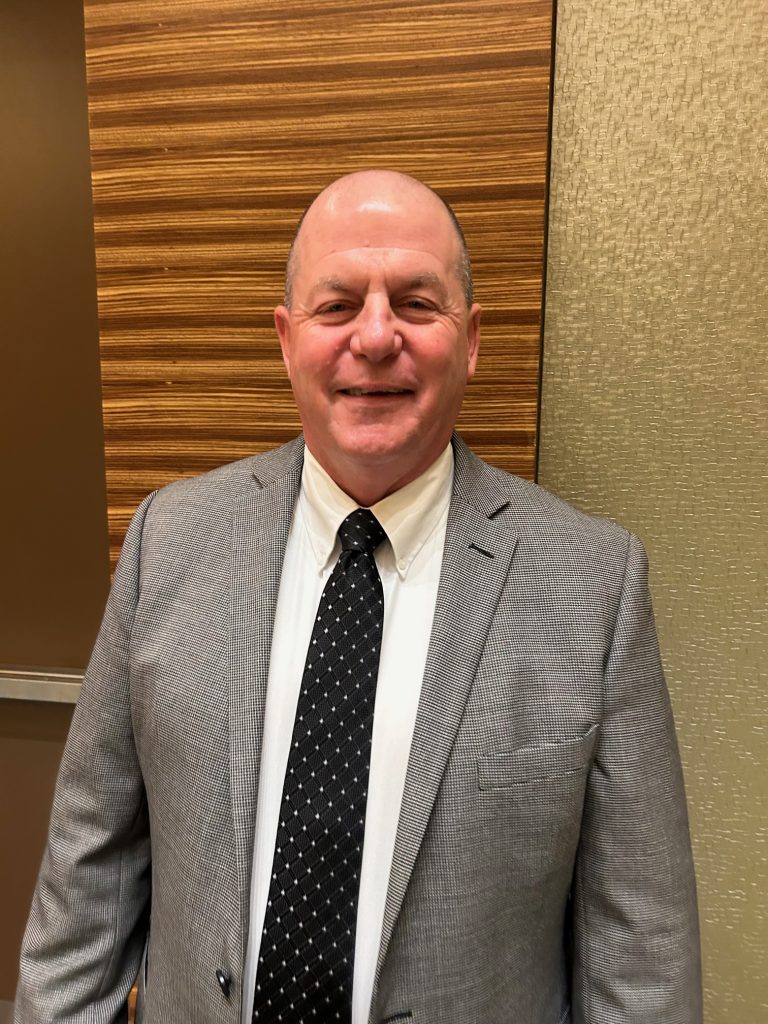
Dan W. McInerney is a licensed electrician, is the Business Manager and Financial Secretary of the International Brotherhood of Electrical Workers (IBEW) Local Union 488.
He had previously served as a Membership Development Representative for the union, and he was the electrical inspector for the City of Bridgeport for almost 20 years.
In 2016, Dan was named Director of the Connecticut Labor Management Cooperation Committee where he coordinated the Committee’s statewide policy advocacy and contract negotiations.
During his tenure as Director, Dan oversaw the continuous growth of the organization and collaborated with Connecticut lawmakers to phase out legislation that was detrimental to Connecticut labor unions and their members.
He also led IBEW’s advocacy efforts to ensure the state’s commitment to employing local union members in constructing and operating Connecticut’s new offshore wind projects.
Dan brings his extensive experience forging alliances on behalf of labor unions and advocating for the rights of Connecticut workers to his role as a member of CRCJ’s Board of Directors.
Read this piece from Dan and Vice Chair Renee Hamel.
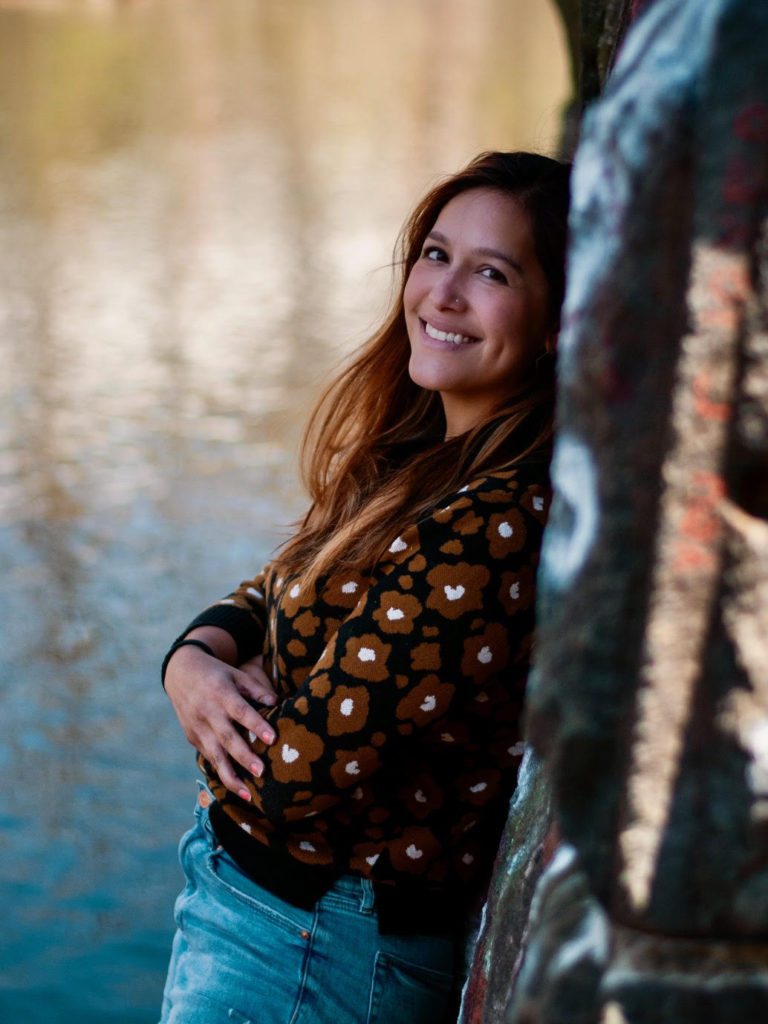
Renee Hamel has worked in different capacities in the Connecticut labor movement over the past five years. She currently serves as Communications Coordinator with AFSCME Council 4, representing 30,000 public sector workers throughout the state. She also serves as a Vice Chair of the CT Roundtable on Climate and Jobs and is co-chair of Council 4’s Environmental Committee. With over a decade of experience, primarily in Hartford, some of her past work includes coordinating after-school programs and conducting evaluation and research for local food insecurity initiatives.
As a social work and public health graduate student at the University of Connecticut, she organized students to attend the People’s Climate March and led presentations for classes about the intersection of climate change, human rights, public health, & social justice.
Her involvement with the Roundtable emphasizes support for a green economy that enables sustainable job growth for the most vulnerable & disenfranchised – not only those disproportionately impacted by climate change but including a thoughtful and intentional “just transition” of workers.
Renee is proud to be among the inspiring leaders of the Roundtable and grateful for the opportunity to merge two passions of climate justice and labor activism.
Read this piece by Renee and board member Dan W. McInerney on how labor is leading in the green economy.
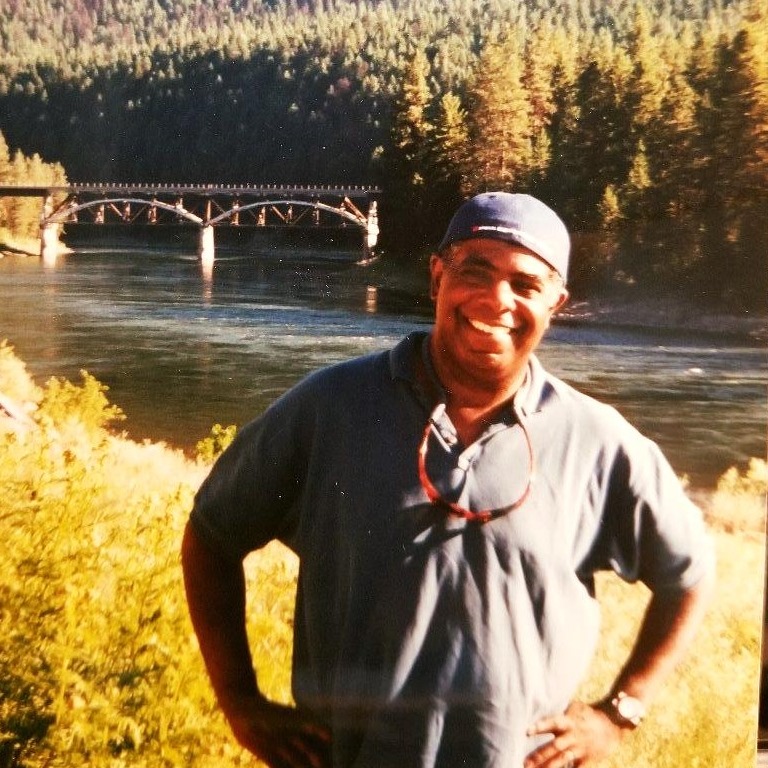
A native of the Pacific Northwest, Guy has been involved with Clean Water Fund’s (CWF) Connecticut Energy Program since 2013, where he currently serves as the Connecticut Energy Program Liaison.
He closely follows agency policy developments with the Connecticut Energy Efficiency Board(EEB), the Connecticut Department of Energy and Environmental Protection (DEEP), the Connecticut Green Bank (CGB) and other agencies. Guy makes sure Clean Water’s statewide volunteer network of local Clean Energy Task Forces/Commissions are kept updated on policy, financial and legislative matters for the benefit of their renewable and energy efficiency initiatives and projects.
In recent years, Guy has had an active role in several congressional and state level electoral campaigns. Guy has served as the City of Hartford’s Assistant Treasurer and Secretary to the City’s Pension Commission and has an extensive background in marketing institutional banking and investment management services to corporations and public pension funds and retirement systems.
Guy resides in the town of Canton, where he serves on the town’s Energy Committee as well as on the Farmington River Watershed Association’s Board of Directors.

Jeremy Brecher is a historian, documentary filmmaker, activist, and author of 15 books on labor and social movements. He has participated in movements for nuclear disarmament, civil rights, peace in Vietnam, international labor rights, global economic justice, accountability for war crimes, climate protection, and many others.
A lifelong Connecticut resident, Brecher served as Humanities Scholar-in-Residence at Connecticut Public Television and Radio. He wrote and/or produced more than a dozen documentaries, mostly on Connecticut topics, including five on Connecticut African-American history, Connecticut Native American history, and Connecticut Puerto Rican history.
He was producer, writer, and host of Connecticut Public Radio’s Remembering Connecticut, which broadcast more than 80 radio programs on a wide variety of Connecticut topics. He is the author of two books on Connecticut working class history, “Brass Valley: The Story of Working People’s Lives” and “Struggles in an American Industrial Region” and “Banded Together: Economic Democratization in the Brass Valley.”
Jeremy is the author of three books on climate change, “Climate Insurgency,” “Climate Solidarity,” and” Against Doom.” His two most recent books, “Save the Humans?: Common Preservation in Action” and “Common Preservation in a Time of Mutual Destruction” address the possibilities for a human survival movement in the face of climate destruction and other threats to human survival.
Jeremy Brecher is a founding member of the Connecticut Roundtable on Climate and Jobs and co-founder and senior strategic advisor for the Labor Network for Sustainability.
Jeremy’s books and documentaries can be downloaded free on his website.
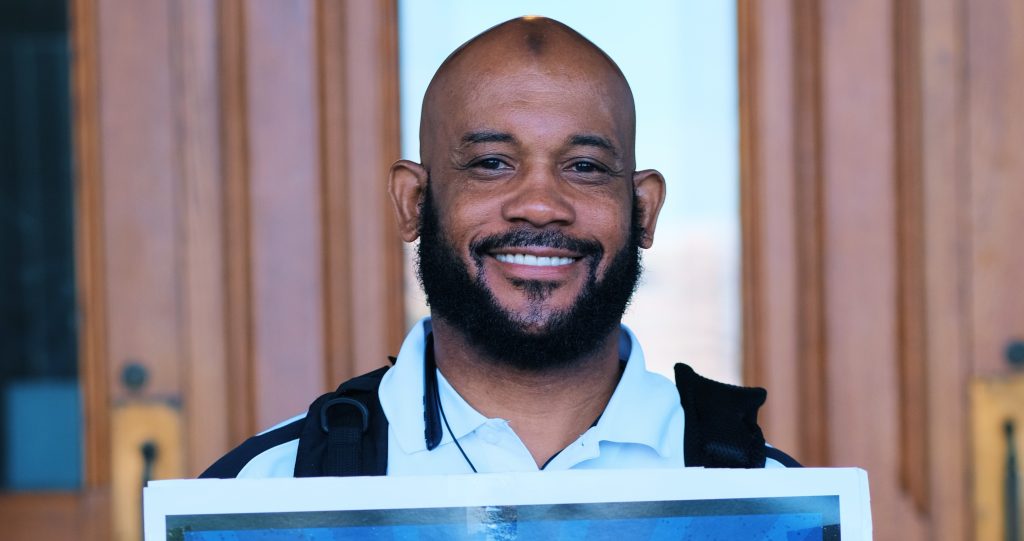
Mustafa Salahuddin is new to the CRCJ board and brings a wealth of knowledge and experience. He is the President and Business Agent for Amalgamated Transit Union Local 1336 in Bridgeport. Mustafa is a retired police officer with 23 years on the job and was also a school bus driver for 13 years. He also has more than 20 years experience as a transit bus operator.
Mustafa has been a strong advocate for the use of electric vehicles, especially buses and other forms of public transportation. Not only are electric buses a healthier option, he said in a 2019 interview, they are more cost efficient in the long-term.
Read Mustafa’s August 2, 2022 op-ed on EV buses.
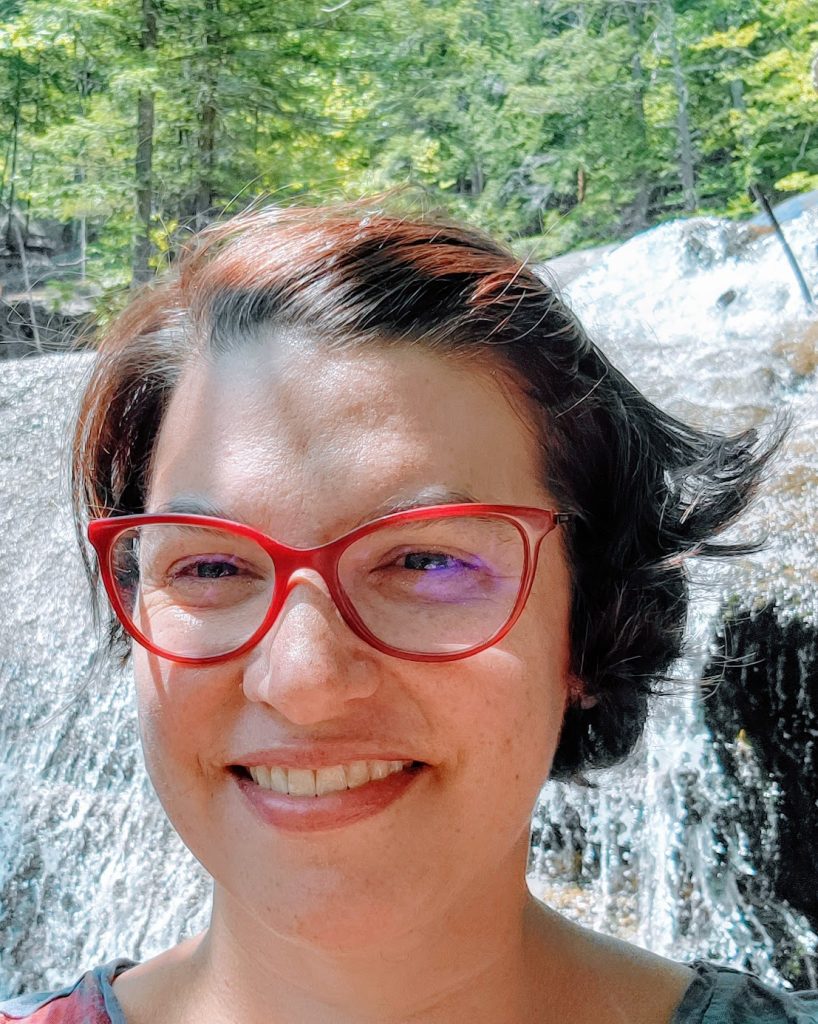
Mary Donegan is an Assistant Professor-in-Residence in the University of Connecticut’s Urban and Community Studies program. Mary’s research is driven by questions of how local governments and institutions can leverage scarce resources to foster socially just and environmentally sustainable economic and community development.
At UConn she teaches courses on urban development and planning, urban sustainability, research methods, and economic development and justice. She is particularly dedicated to promoting sustainable, multimodal transportation options and can often be found walking, biking, and riding transit.
She holds a Master’s and Ph.D. in City and Regional Planning from the University of North Carolina at Chapel Hill and an undergraduate degree from Wellesley College in economics and Russian area studies.
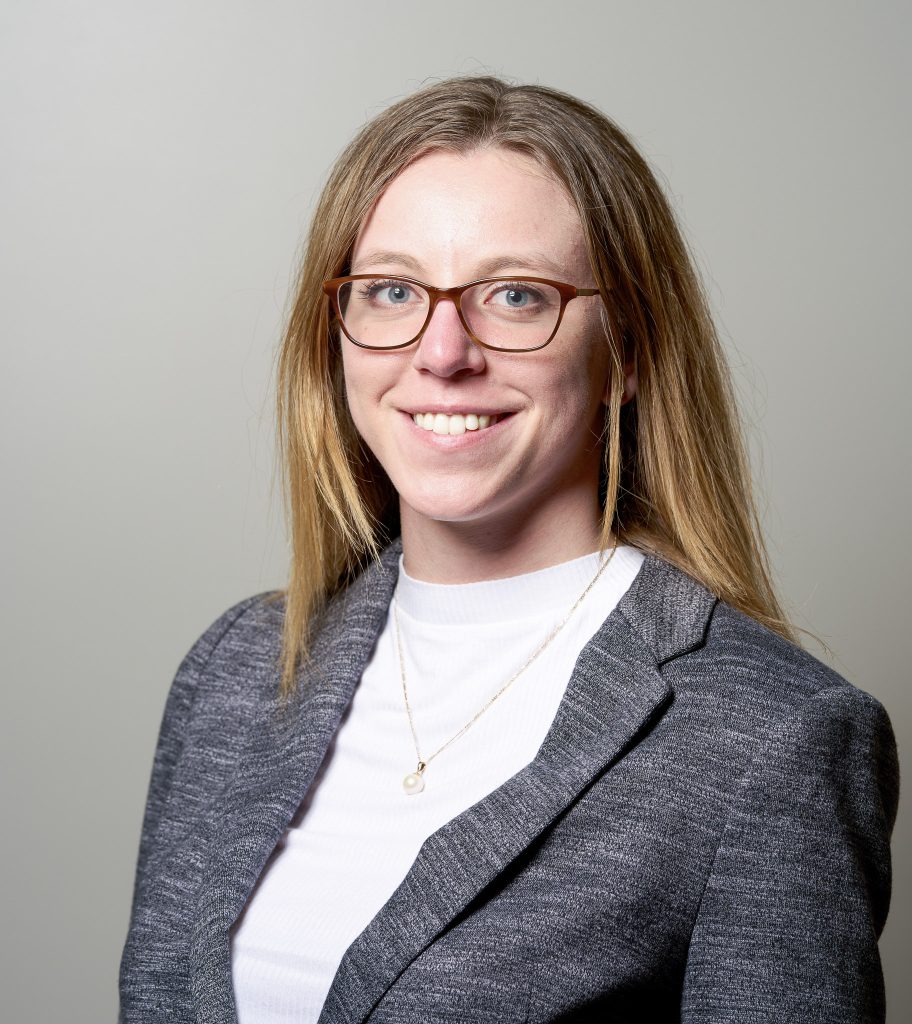
Sandy is new to the CRCJ board as of 2023 and brings a wealth of expertise to the role of a board member. She currently works in Clinical Trials at Yale, holds a Master’s in Public Health and has over 5 years of non-profit leadership experience. Having served on multiple boards in the past, Sandy possesses a strong track record of strategic decision-making, relationship-building, process, and quality improvement.
She is passionate about climate justice and is committed to the mission of CRCJ. Sandy’s enthusiasm for supporting a green economy drives her dedication to serving stakeholders. In her free time, she enjoys nature by hiking and skiing.
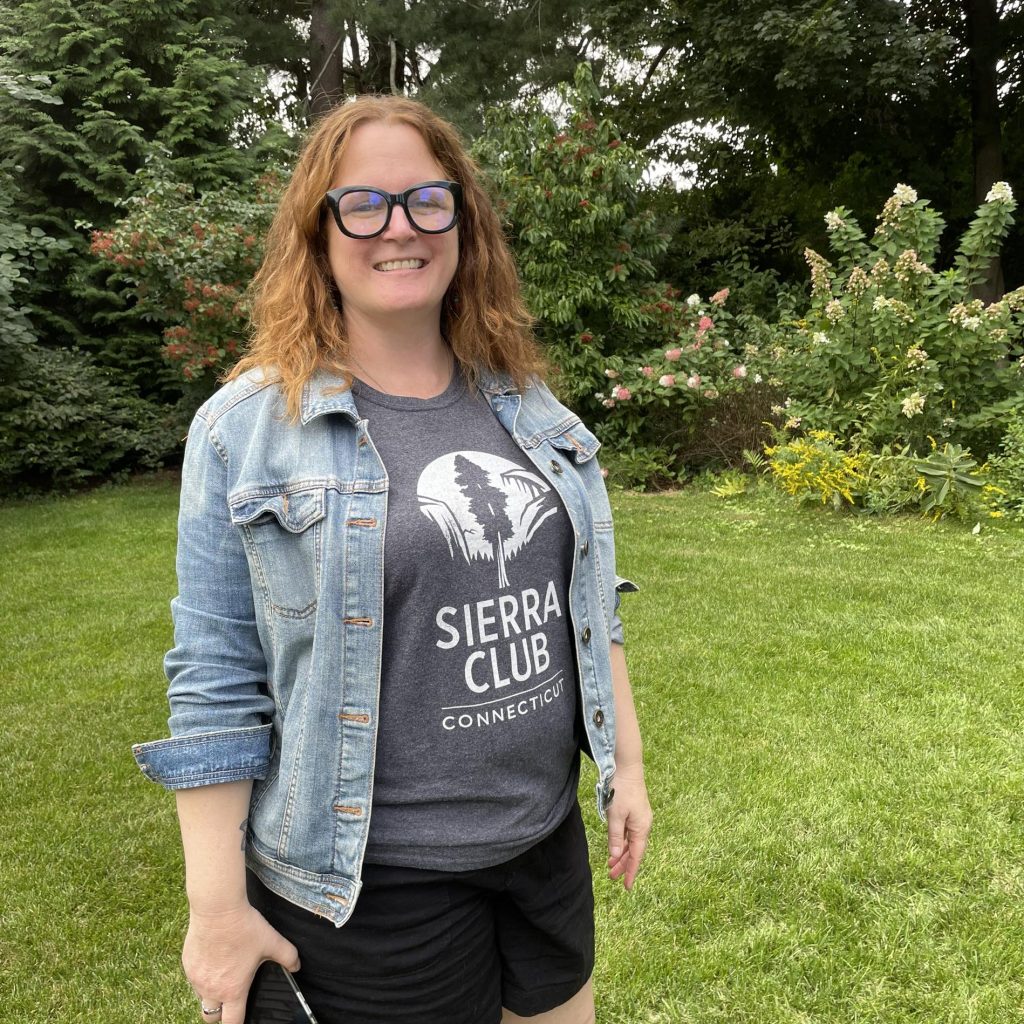
Ann Gadwah is a passionate environmental activist and an organizer with Sierra Club Connecticut. Raised and educated in the hills of Western Massachusetts, Ann learned to love the outdoors and nature from an early age. When the Exxon Valdez oil spill happened in 1989, Ann was devastated and knew then she wanted to help protect wildlife, the oceans, and the environment.
Ann wore various hats over the years. She has been a high school history teacher and a community activist. She organized rallies in support of Standing Rock and the LGBTQ community. She was a bartender and a tarot reader. She always wanted to help protect the natural world so in 2008, she joined the Sierra Club. Her activism there focused primarily on petitions, rallies, letters and phone calls to elected officials. In the wake of the 2016 election, she wanted to do something more, something that mattered, that could make a difference. She called Sierra Club Connecticut and asked if there was anything she could do to help. There was. This started her on the journey that brought her to today. Her work with Sierra Club is the most important and fulfilling job she has ever done. Being on the board of CT Roundtable on Climate and Jobs as a natural progression of this work and is thrilled and humbled for the opportunity.
Ann currently resides in New Hartford, CT with her husband and son and various animal friends. She teaches yoga part time. She loves traveling, live music, cooking, a good book, and a walk in the woods.
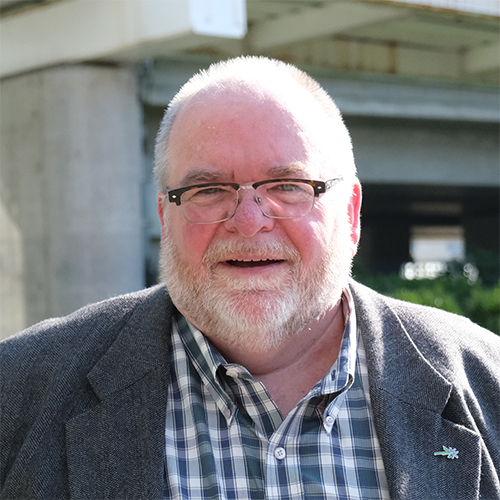
John Harrity is a founding member of the Connecticut Roundtable on Climate and Jobs and currently serves as Board Chair. John also serves on the Board of the Connecticut Green Bank, a quasi-public agency that has leveraged $1 billion in private/public investments in CT renewables, creating more that 13,000 jobs. He was also a founding member and Vice Chair of the CT Fuel Cell and Hydrogen Coalition, a fuel cell industry group. John served as President of the CT State Council of Machinists from 2012 to 2018. He represented CT labor on the CT Employment and Training Commission and the Manufacturing Innovation Fund Advisory Board.
He has a BA from the University of Connecticut and an MA from the University of Massachusetts in Labor Studies. John began his career in 1979 as a Vertical Turret Lathe operator at Pratt & Whitney. He is retired after 38 years of active involvement in the Machinists Union, including 32 years on staff as an organizer, communications director, legislative coordinator and business representative. He is a recipient of the IAM’s Bob Kalasky Outstanding Achievements Award for Communications.
Hello Fellow CRCJ Board Members,
I am grateful for the opportunity to serve the CT Roundtable on Climate and Jobs as the Board Chair for the coming year. It is an honor to work alongside you to provide the support CRCJ needs in their mission to achieve a just transition to a low-carbon economy. I want to take this opportunity to lay out what I see are the priorities for CRCJ in the coming year, priorities that I
urge you to support, as they will help strengthen CRCJ’s ability to succeed in our various initiatives.
1. Board Development and Governance Training – A healthy, robust non-profit is guided by a board of directors
who has a solid understanding of their roles and responsibilities as board members. I will be helping to guide the
effort to find a consultant that can help provide the training our board needs to maximize our effectiveness as
board members. I also want to make sure each and every one of us enjoys our board member experience – board
development and governance training will help us find satisfaction in our service to CRCJ. It is my goal to have
the staff initiate this process ASAP.
2. Justice, Equity, Diversity and Inclusion (JEDI) Work – CRCJ spent the larger part of a year working with
Thought Partner Solutions on race equity training; an experience that was rightfully challenging and one we need
to resume as soon as possible. It is our responsibility as board members to be as culturally competent in the areas
of racial equity and justice as possible. CRCJ’s work focuses its work on fighting for the most marginalized and
climate crisis-impacted people in our state. None of us can claim we have done all the work there is to do in being
an antiracist – there is always more work to be done. As such, I expect that each of us will humbly participate in
the process of JEDI training that will resume this fall. I have asked staff to initiate this process so we can be ready
to resume in September.
3. Fundraising and Financial Support – While we do not put a dollar amount on what we expect from our board
members to give to CRCJ, we do need to substantially increase how we help financially support the organization –
be it through introducing us to potential major donors or helping plan a fundraising event. It is my intent to
activate the existing Development Committee on the board of directors. If you are interested in serving on this
committee, please let me know ASAP.
These are just three of the priorities I envision for the board of directors to focus upon in the coming year; there
are others, though these are the most pressing. You can expect me to keep these initiatives going and the
expectation is that you will be active participants in these endeavors.
If you have any questions or concerns about these priorities, please do not hesitate to set up a time for us to talk 1:1.
In the meantime, I thank you for your service and I am excited about working alongside each of you as we
fight for climate justice in Connecticut.
In solidarity,
Dan W. McInerney
Board Chair
© 2022 Connecticut Roundtable on Climate and Jobs. All Rights Reserved. | contact | privacy policy